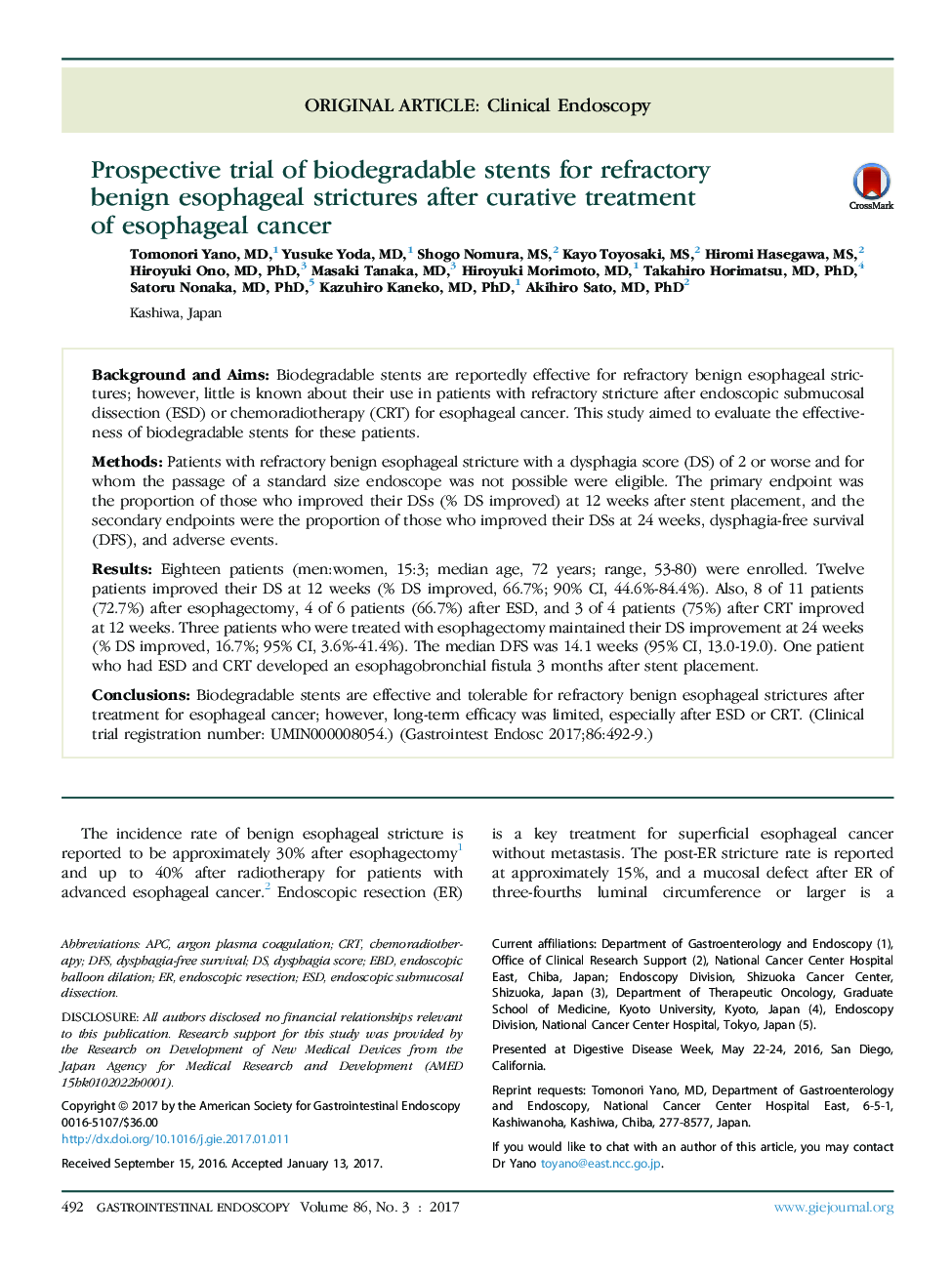| Article ID | Journal | Published Year | Pages | File Type |
|---|---|---|---|---|
| 5659229 | Gastrointestinal Endoscopy | 2017 | 8 Pages |
Background and AimsBiodegradable stents are reportedly effective for refractory benign esophageal strictures; however, little is known about their use in patients with refractory stricture after endoscopic submucosal dissection (ESD) or chemoradiotherapy (CRT) for esophageal cancer. This study aimed to evaluate the effectiveness of biodegradable stents for these patients.MethodsPatients with refractory benign esophageal stricture with a dysphagia score (DS) of 2 or worse and for whom the passage of a standard size endoscope was not possible were eligible. The primary endpoint was the proportion of those who improved their DSs (% DS improved) at 12 weeks after stent placement, and the secondary endpoints were the proportion of those who improved their DSs at 24 weeks, dysphagia-free survival (DFS), and adverse events.ResultsEighteen patients (men:women, 15:3; median age, 72 years; range, 53-80) were enrolled. Twelve patients improved their DS at 12 weeks (% DS improved, 66.7%; 90% CI, 44.6%-84.4%). Also, 8 of 11 patients (72.7%) after esophagectomy, 4 of 6 patients (66.7%) after ESD, and 3 of 4 patients (75%) after CRT improved at 12 weeks. Three patients who were treated with esophagectomy maintained their DS improvement at 24 weeks (% DS improved, 16.7%; 95% CI, 3.6%-41.4%). The median DFS was 14.1 weeks (95% CI, 13.0-19.0). One patient who had ESD and CRT developed an esophagobronchial fistula 3 months after stent placement.ConclusionsBiodegradable stents are effective and tolerable for refractory benign esophageal strictures after treatment for esophageal cancer; however, long-term efficacy was limited, especially after ESD or CRT. (Clinical trial registration number: UMIN000008054.)
